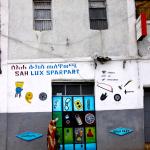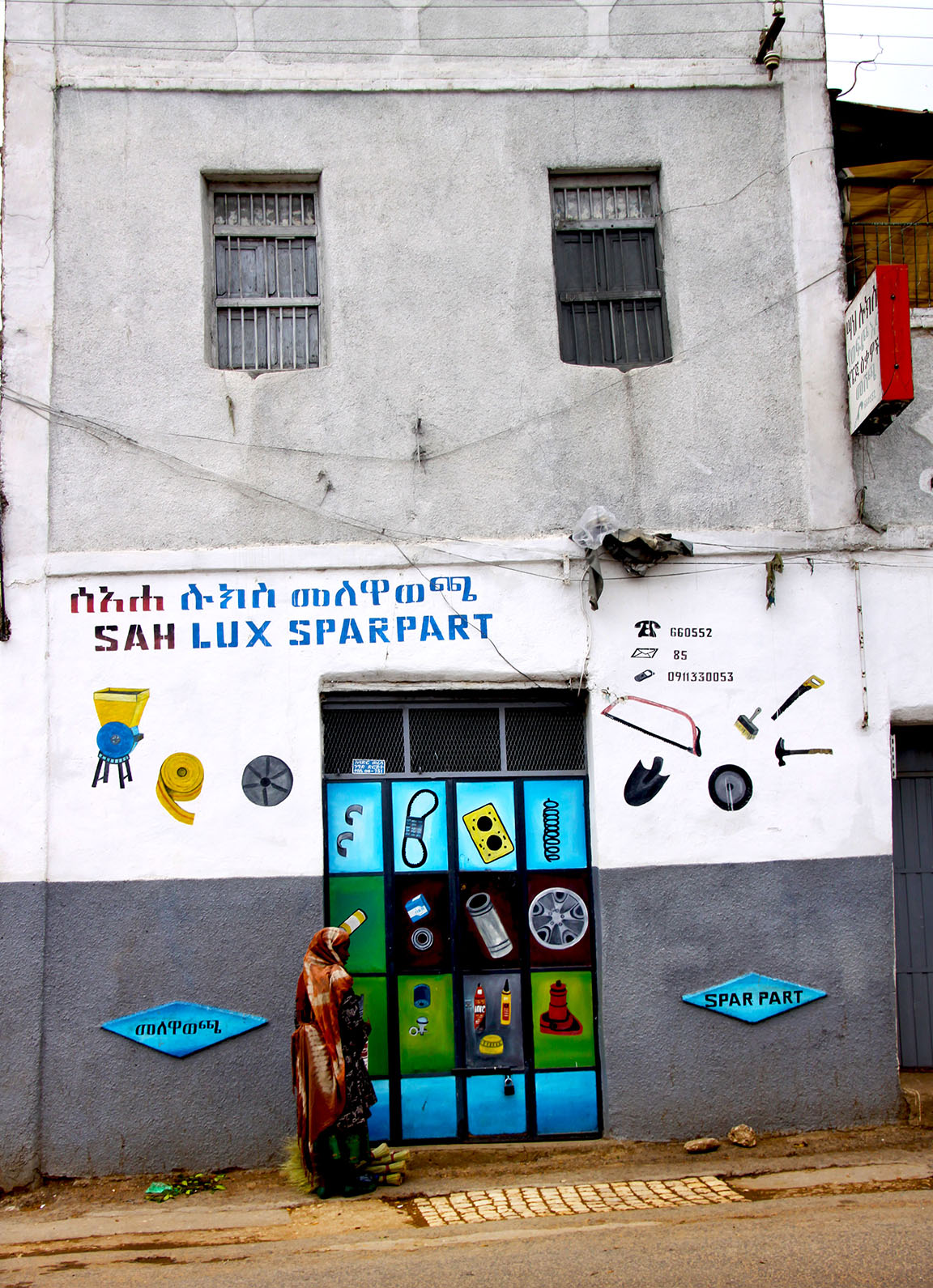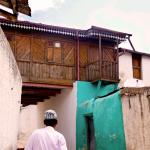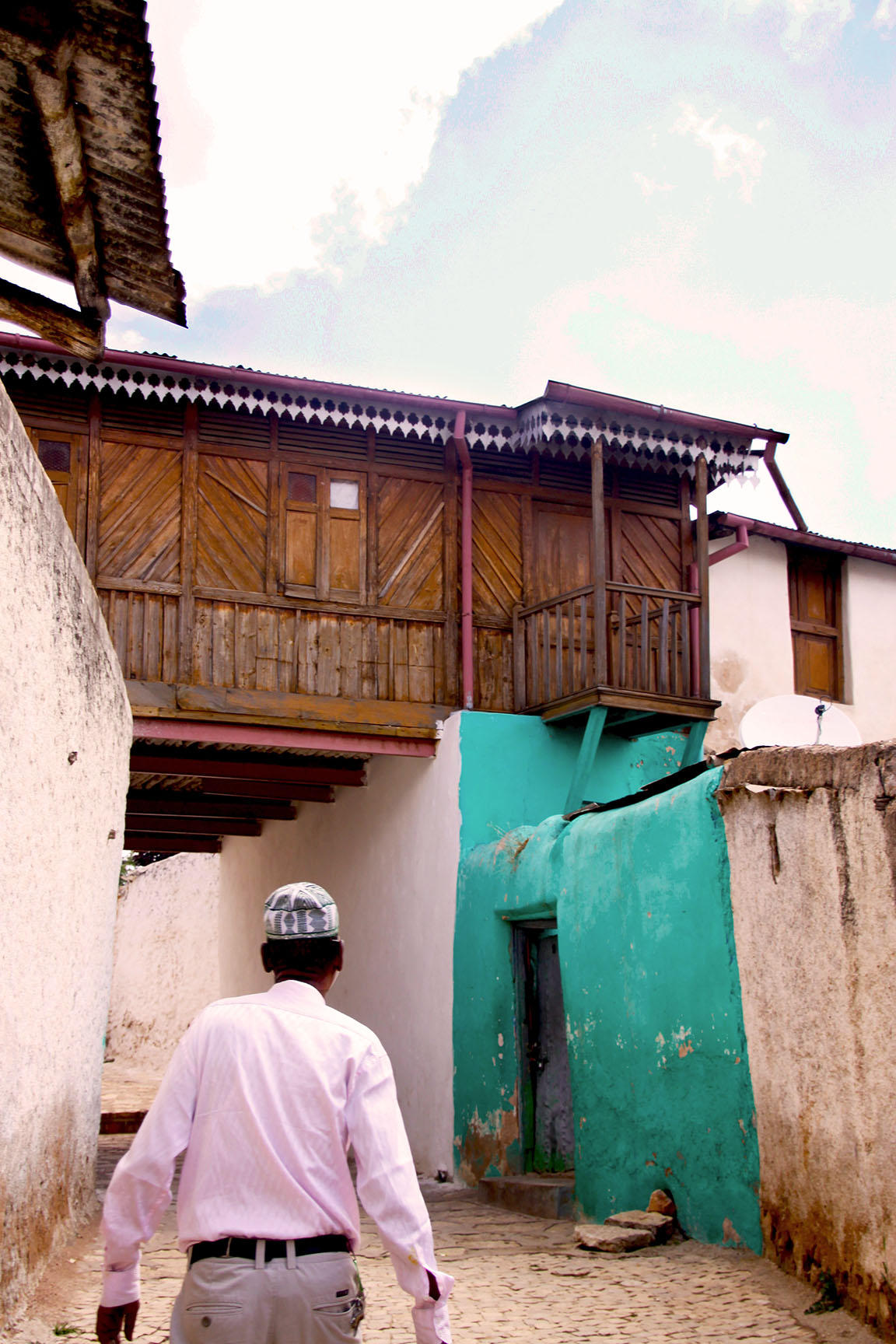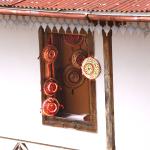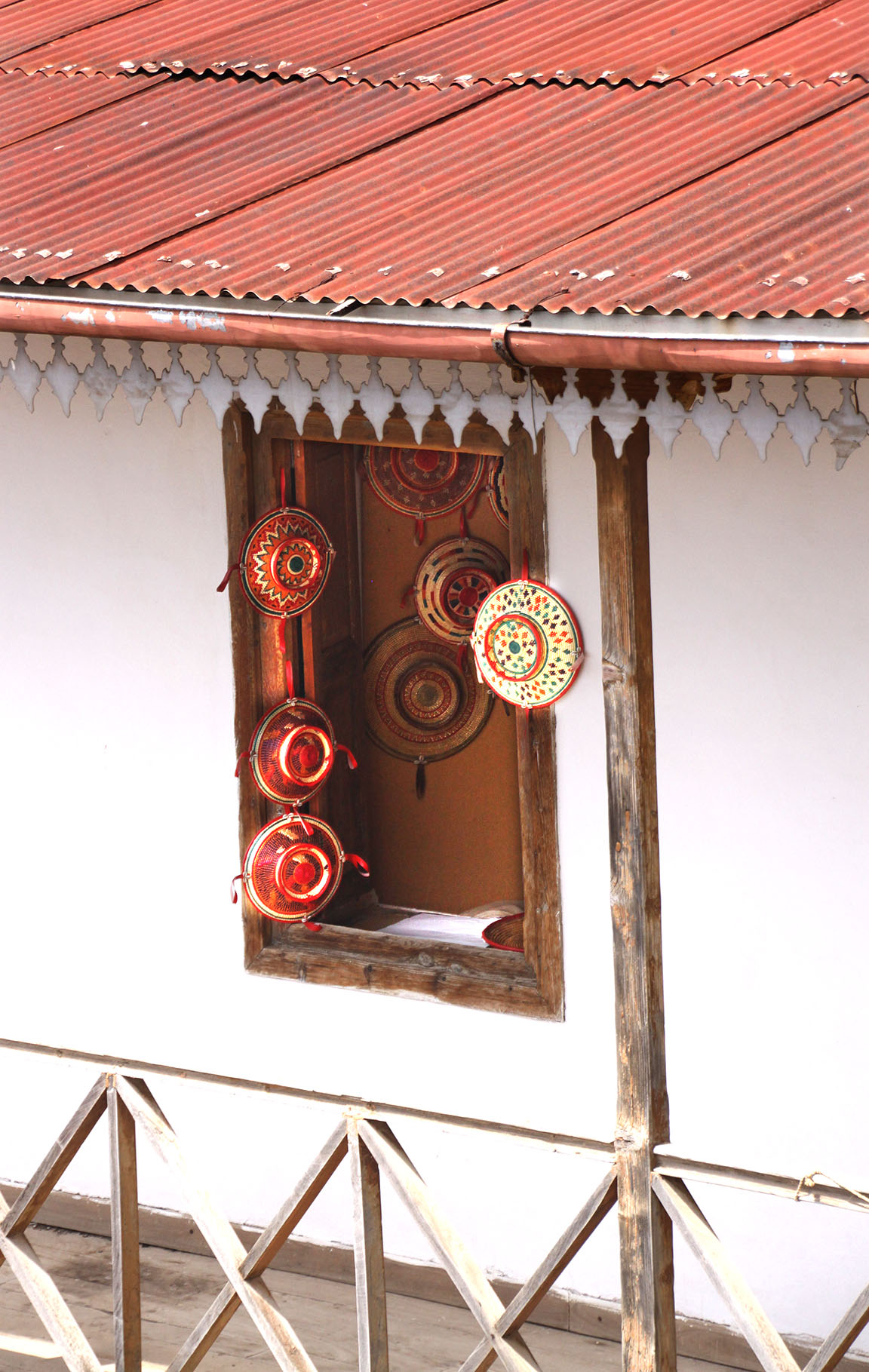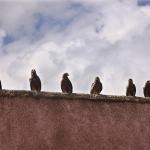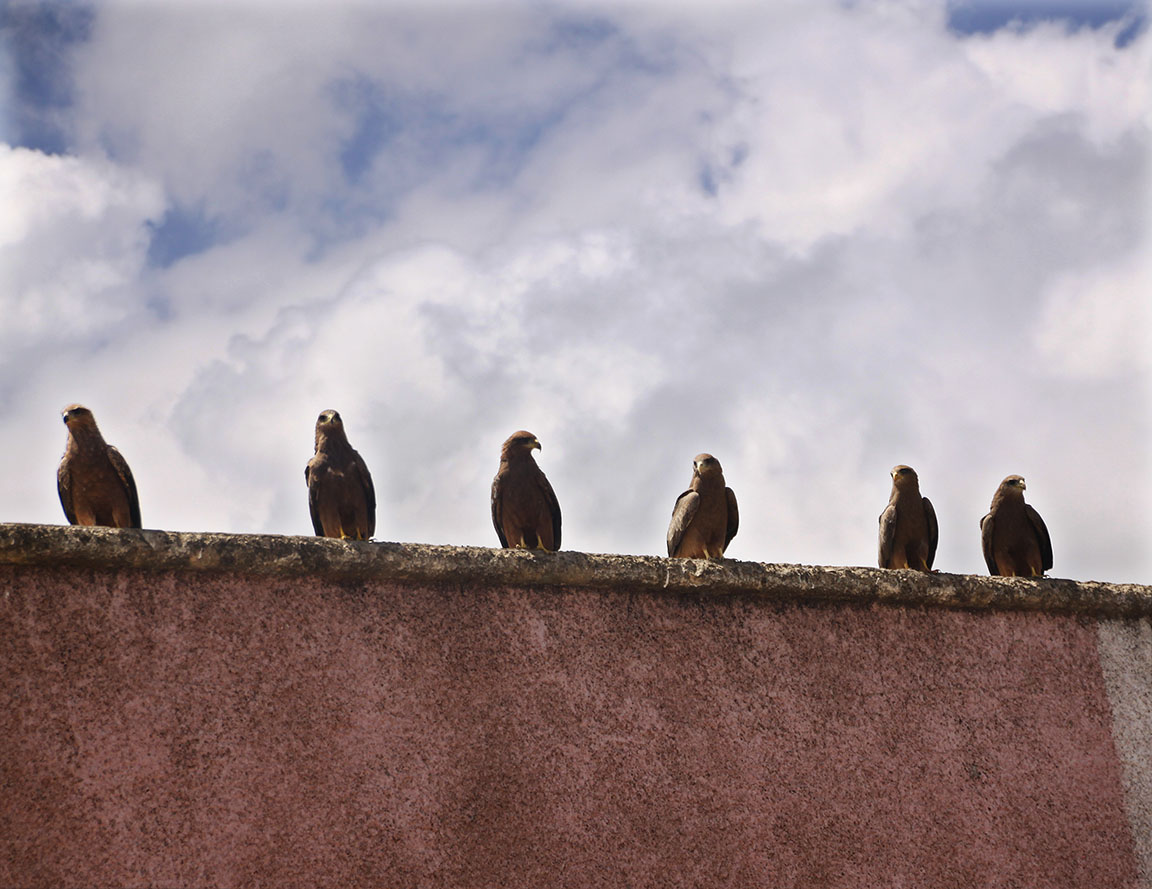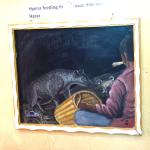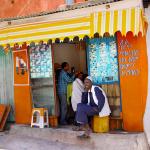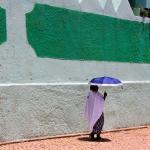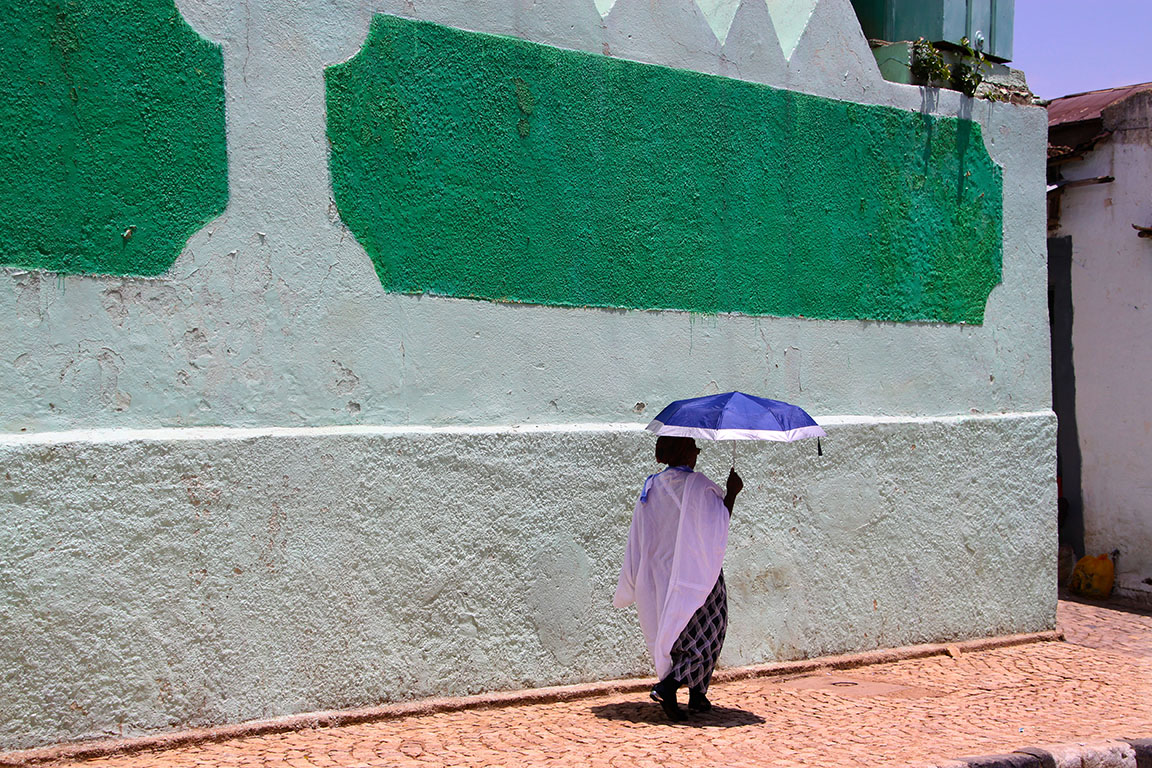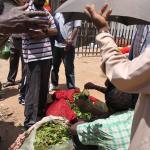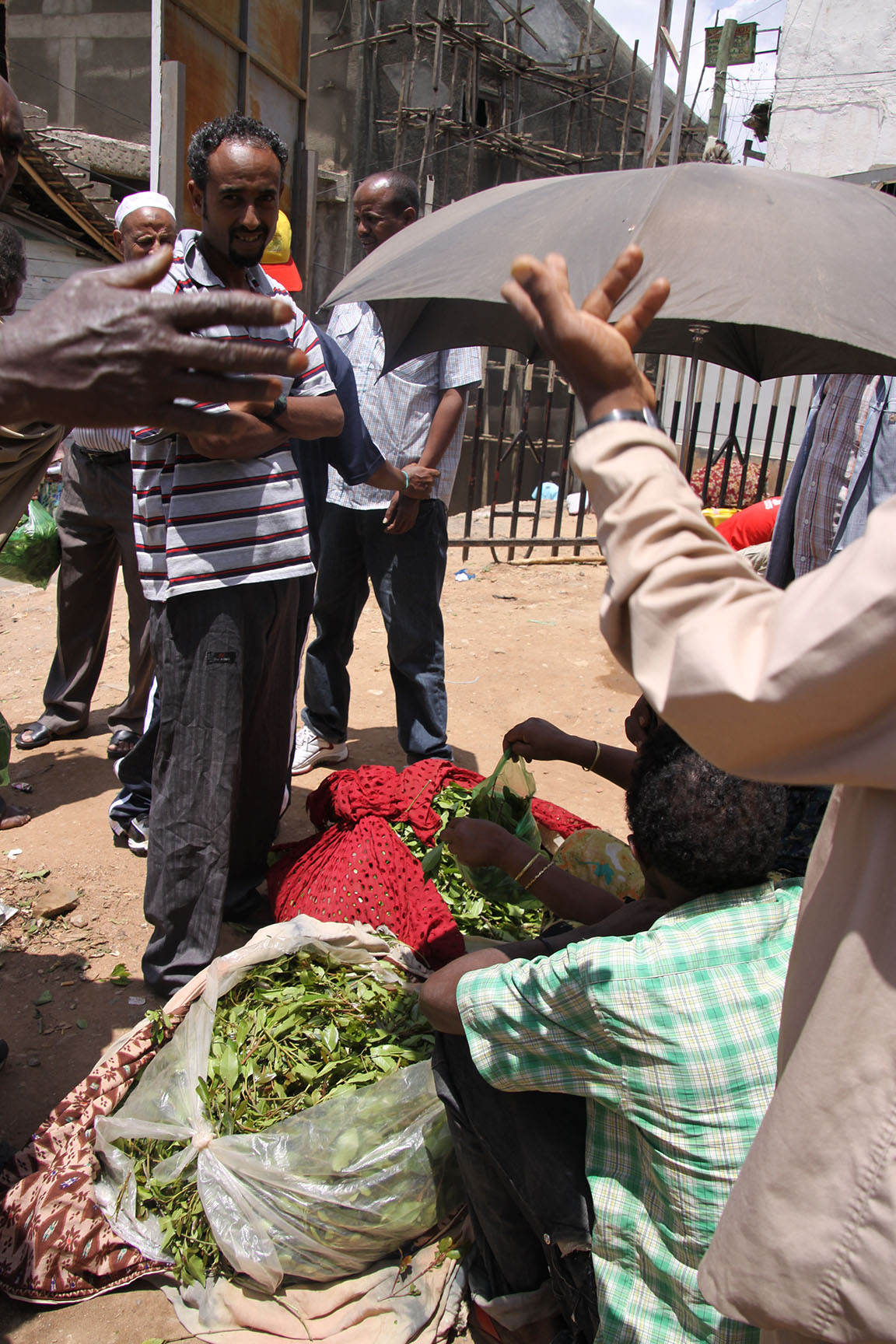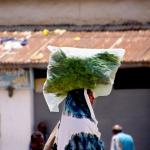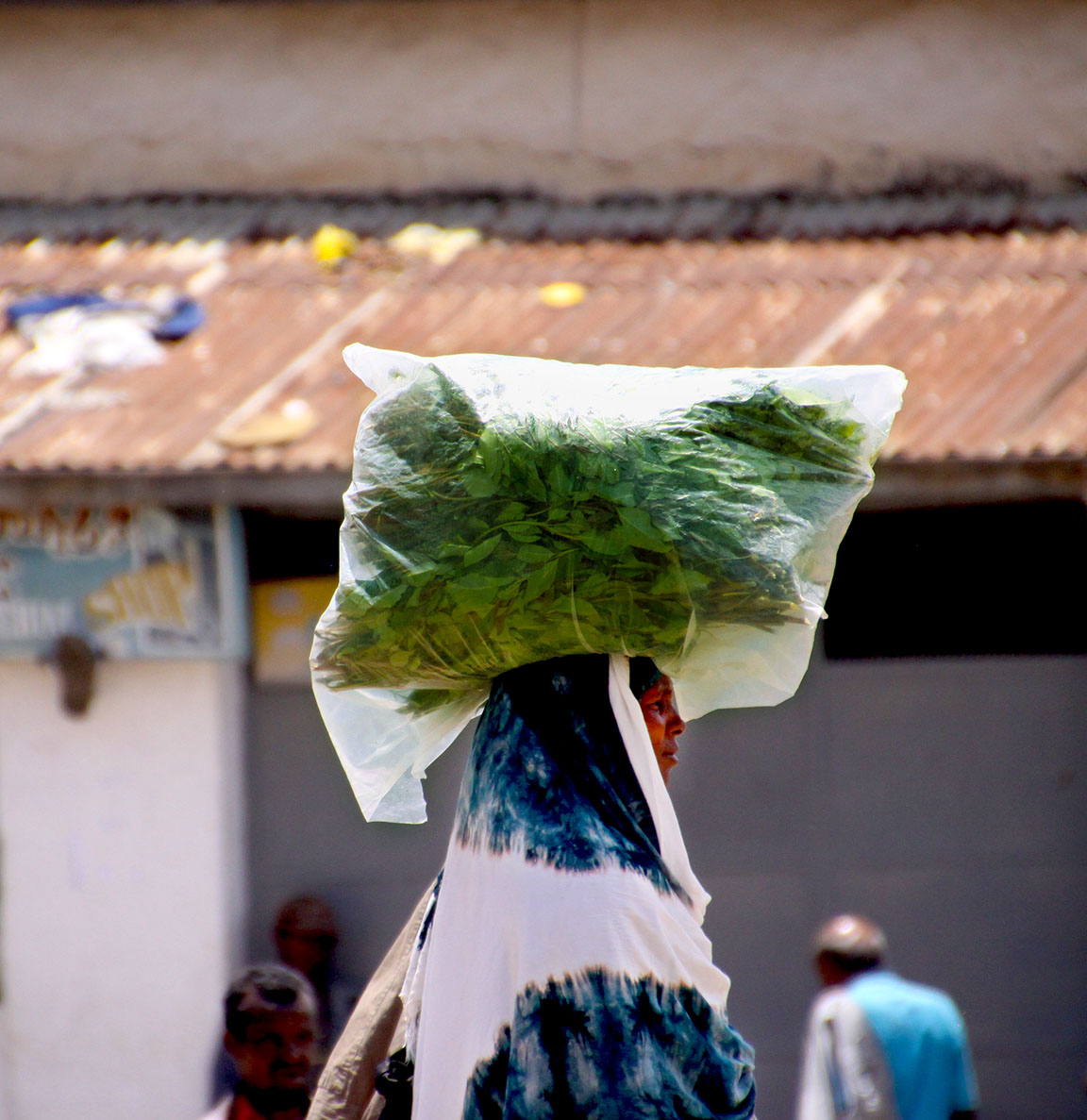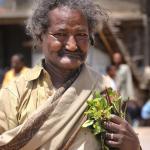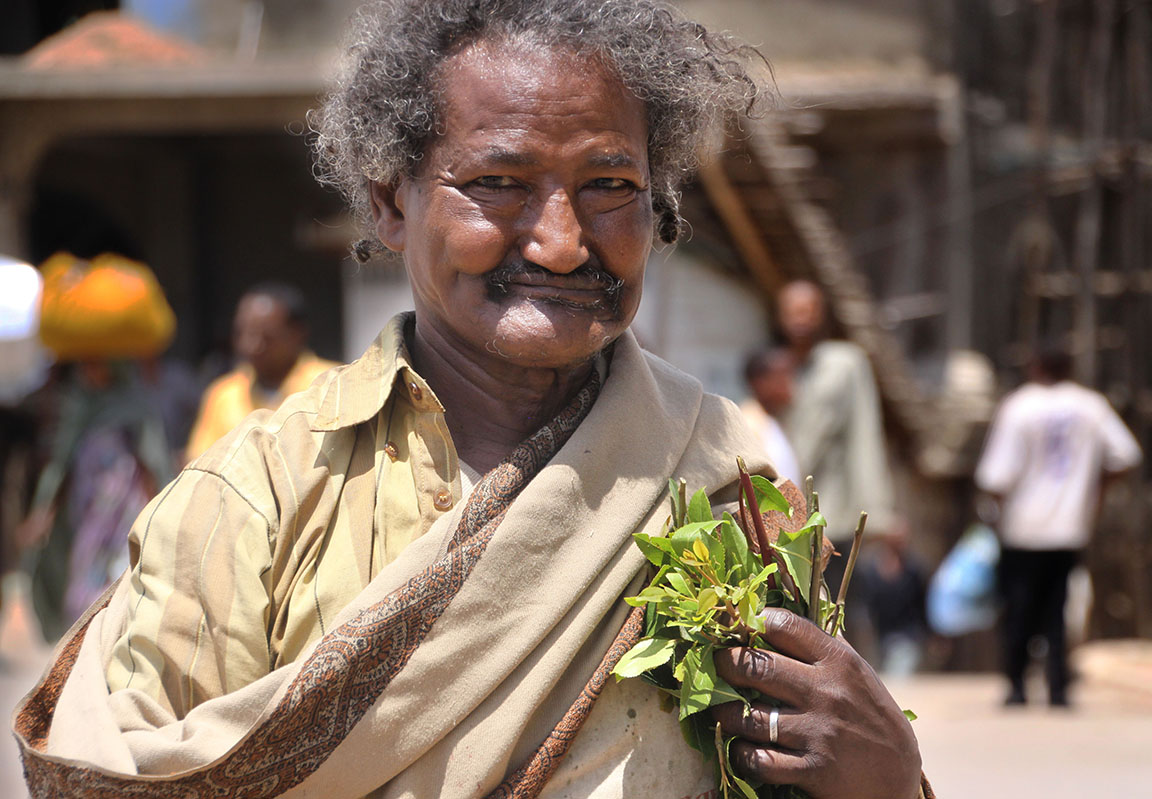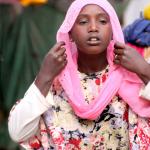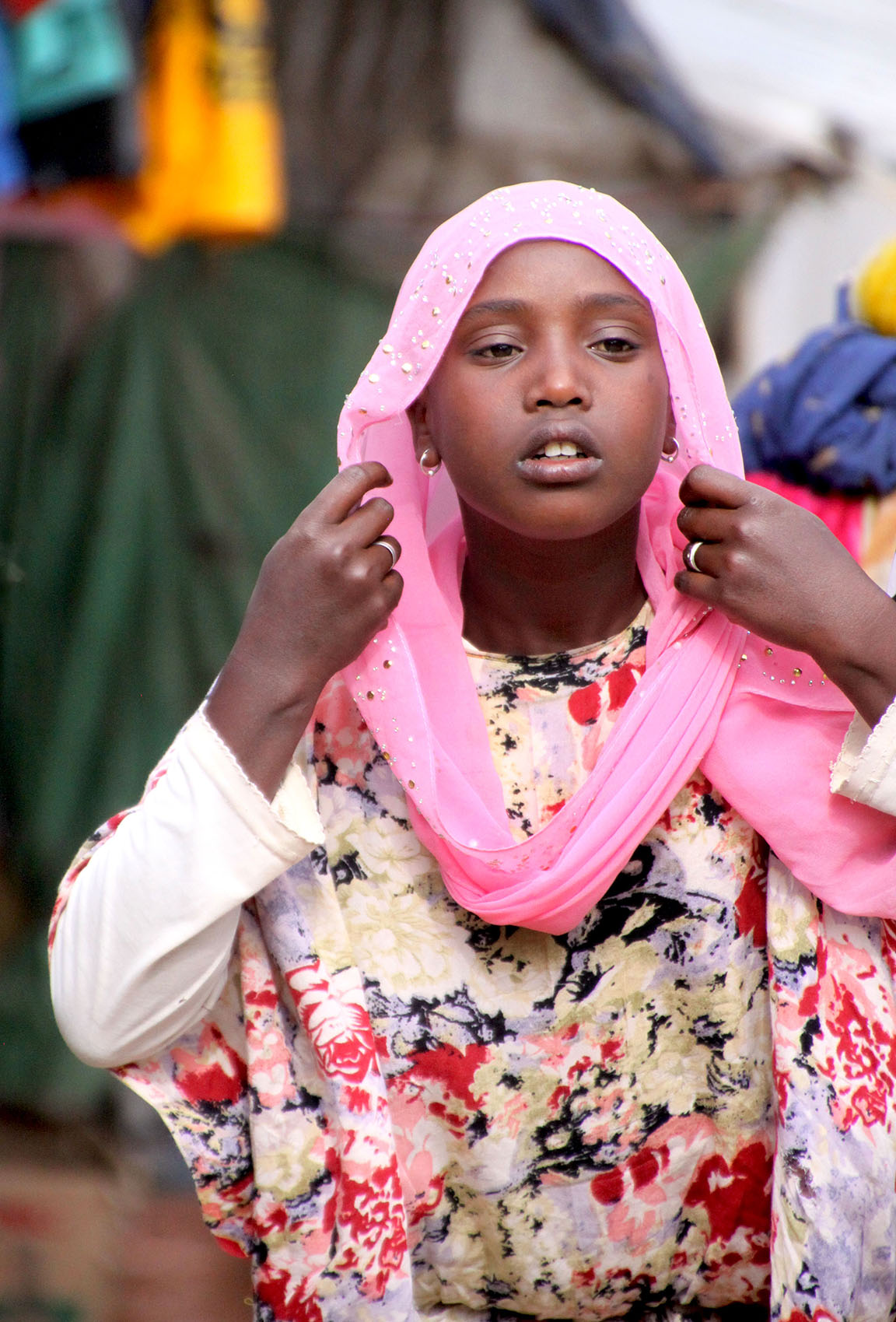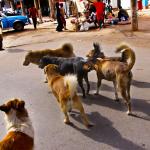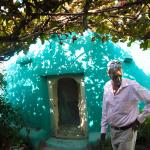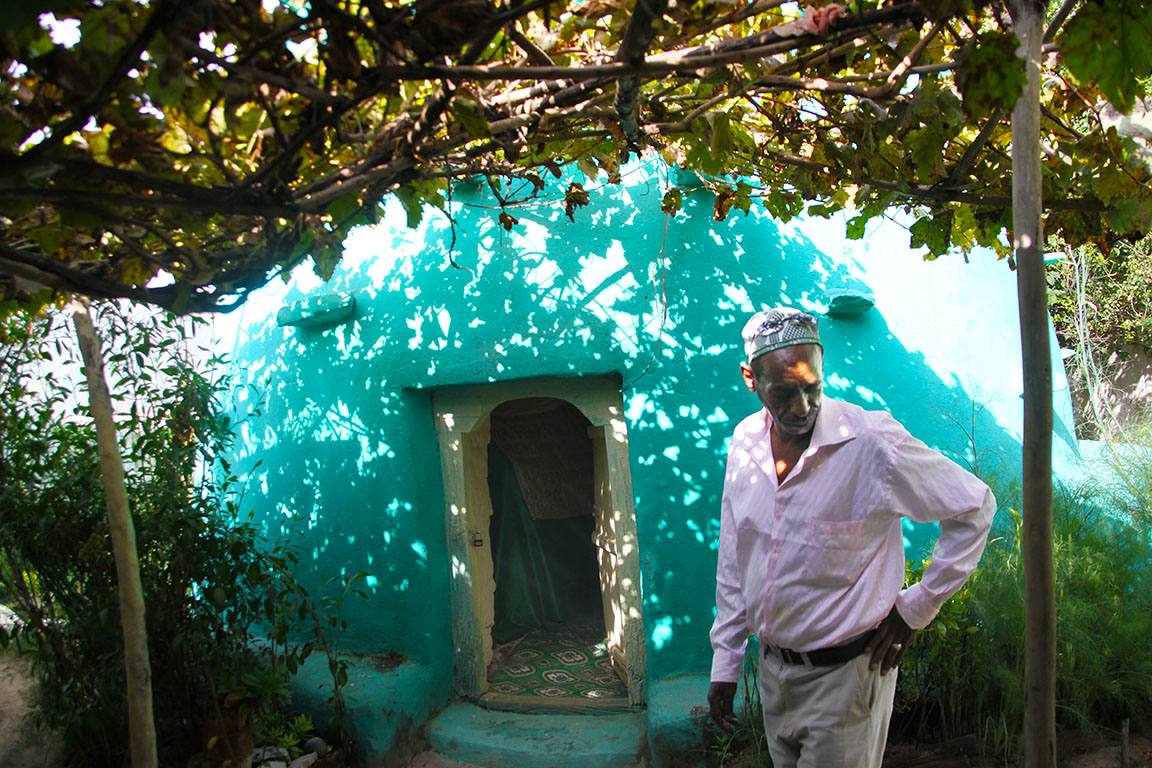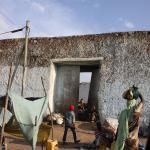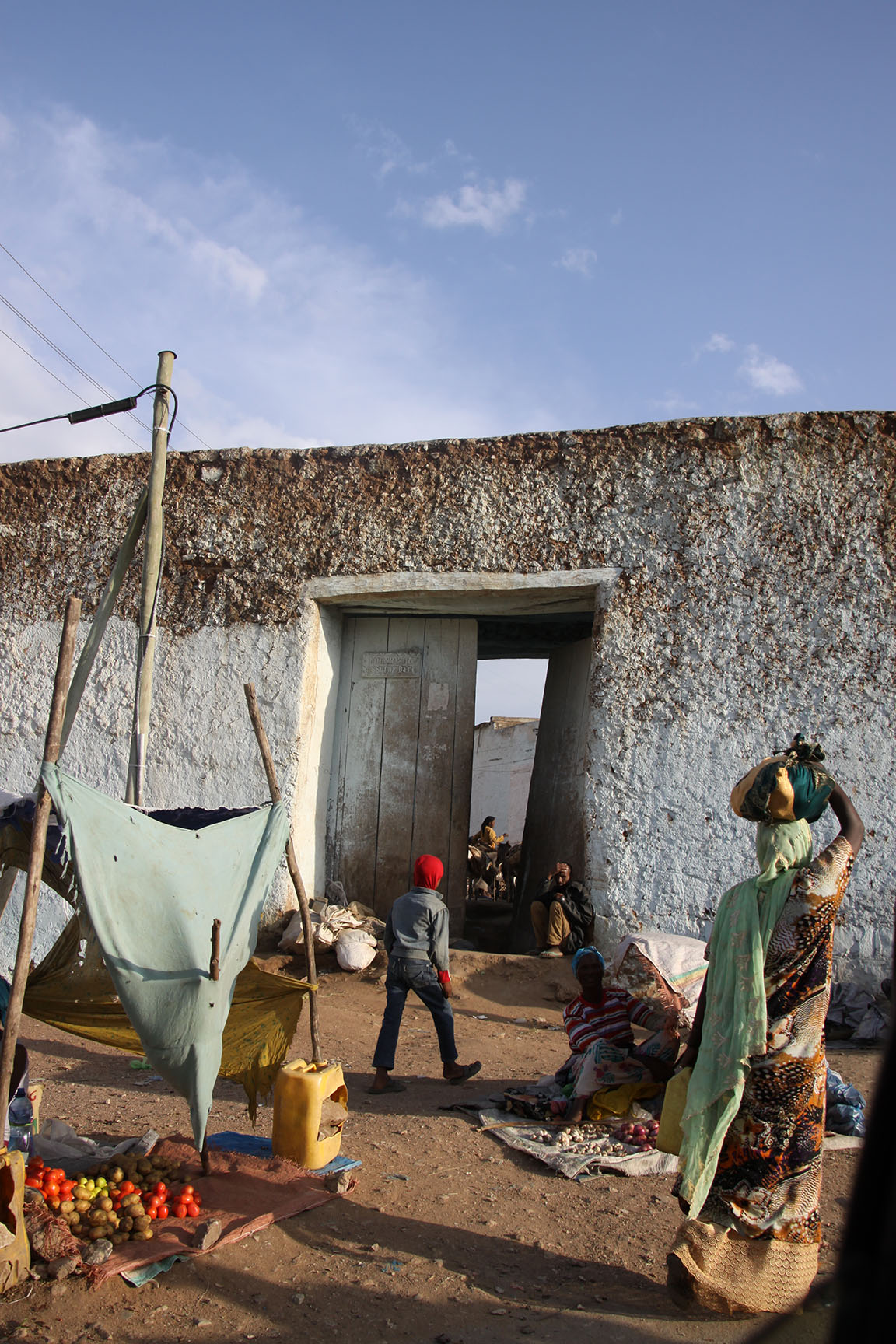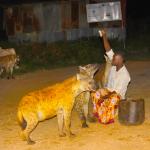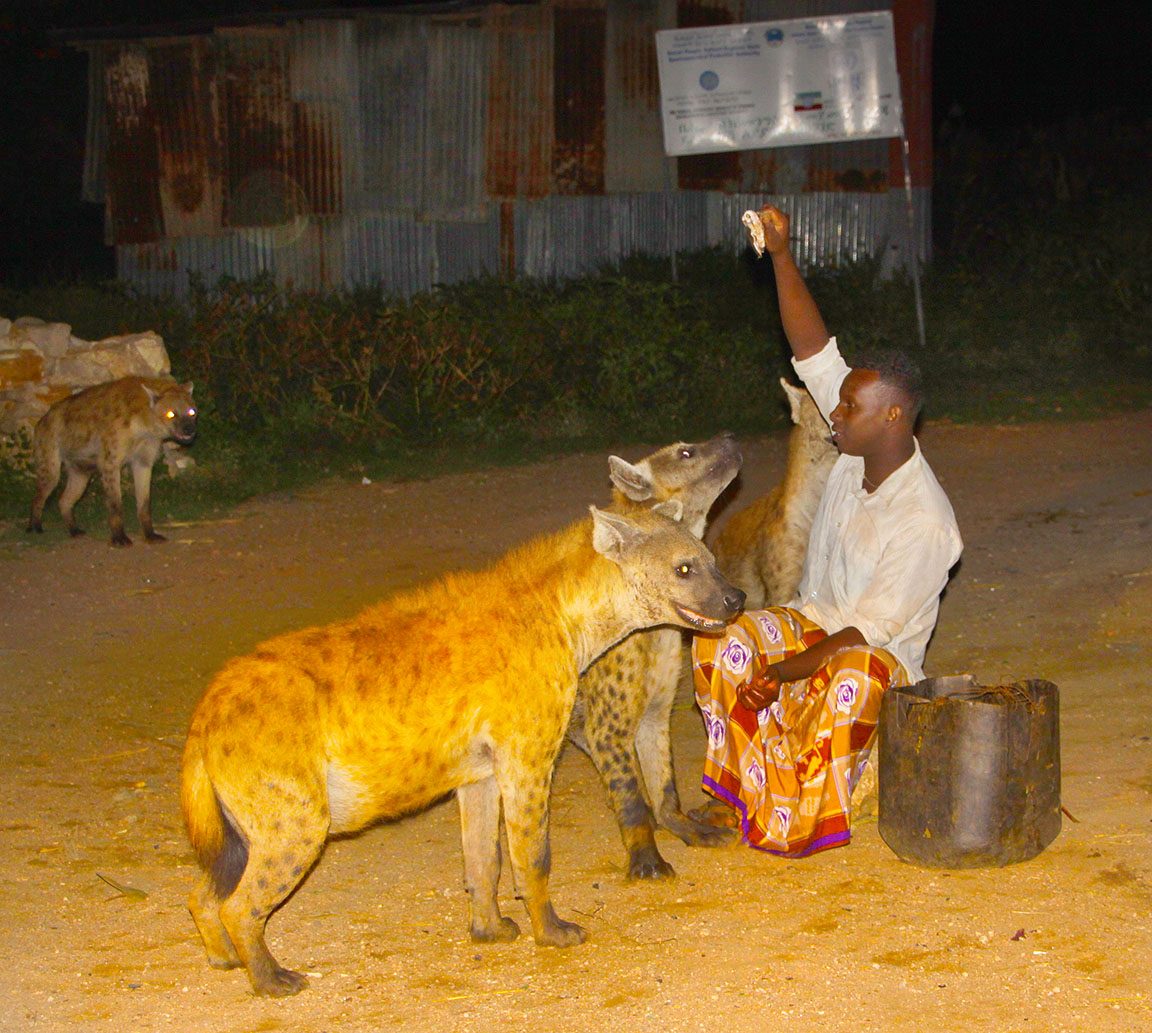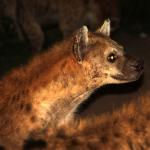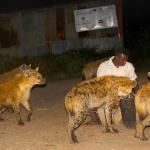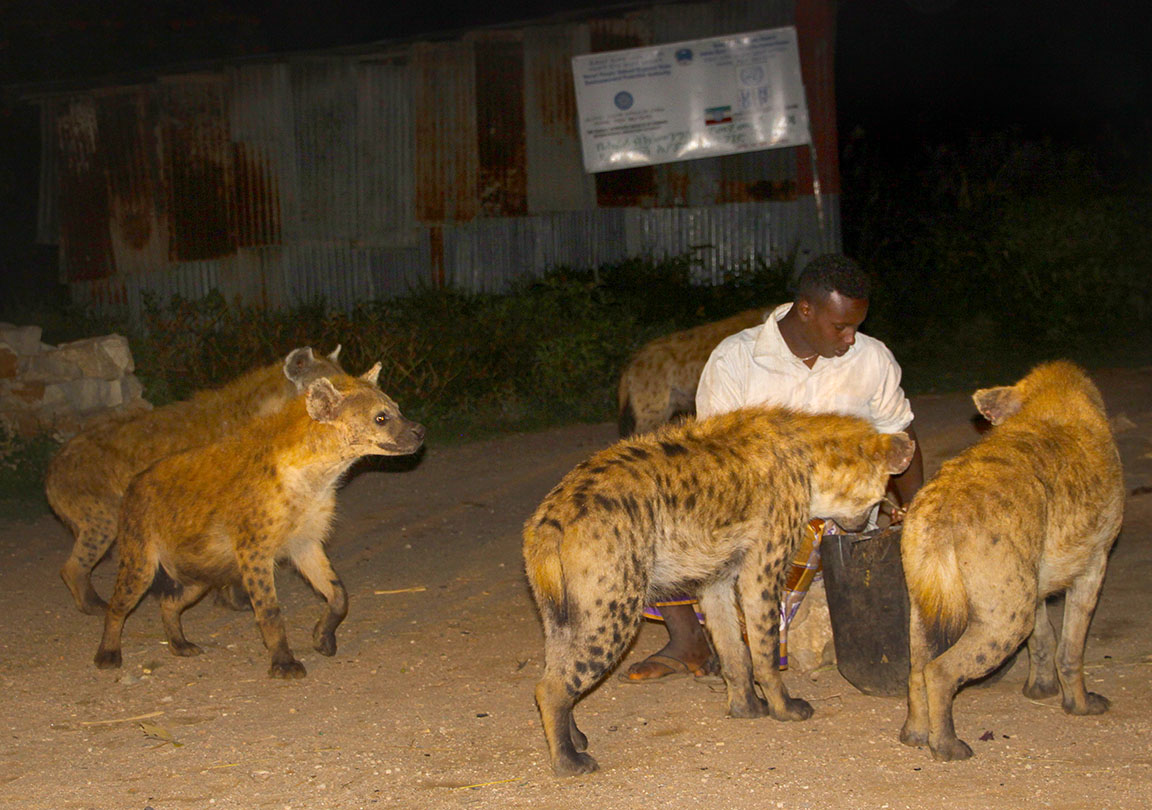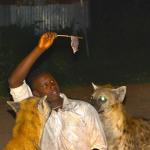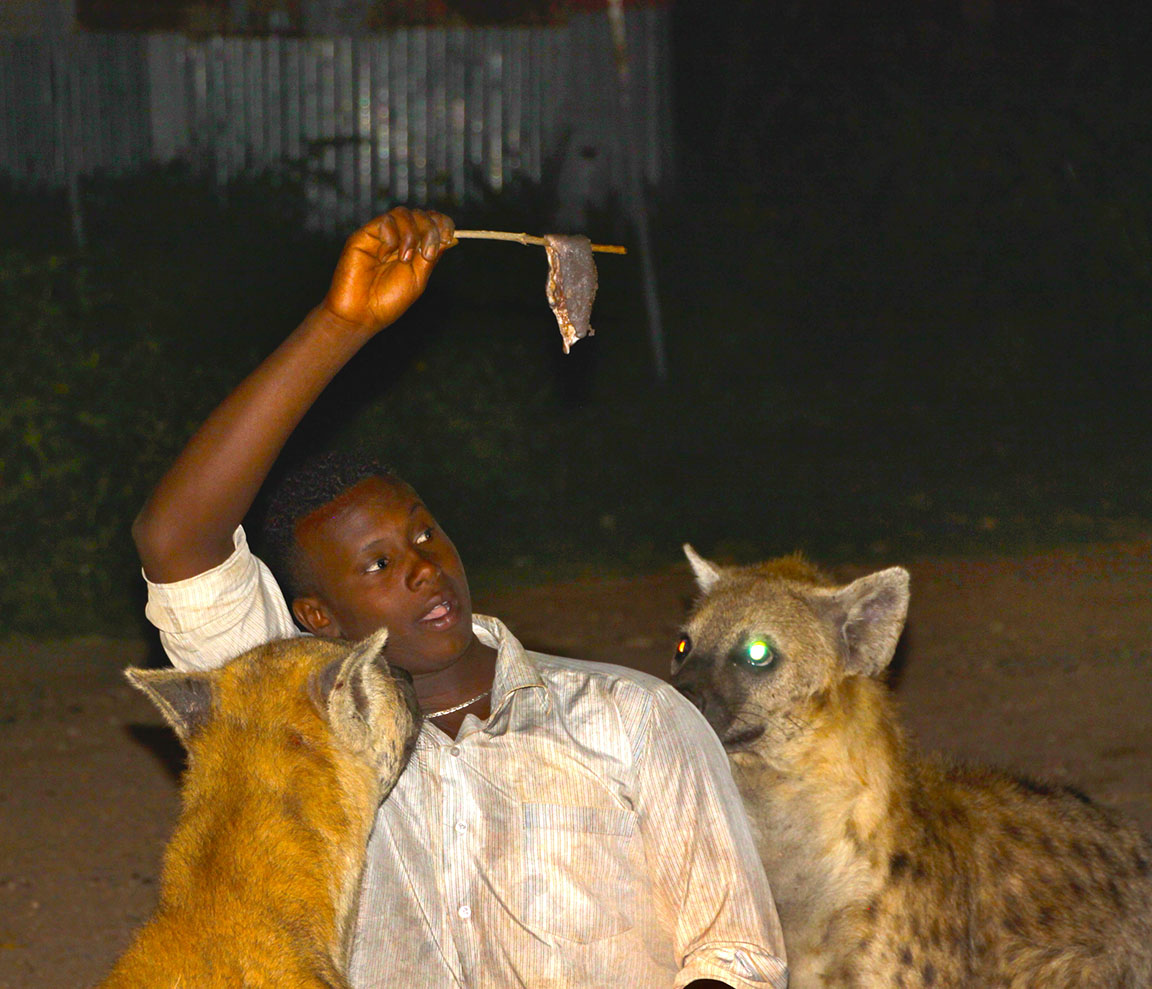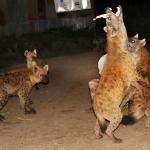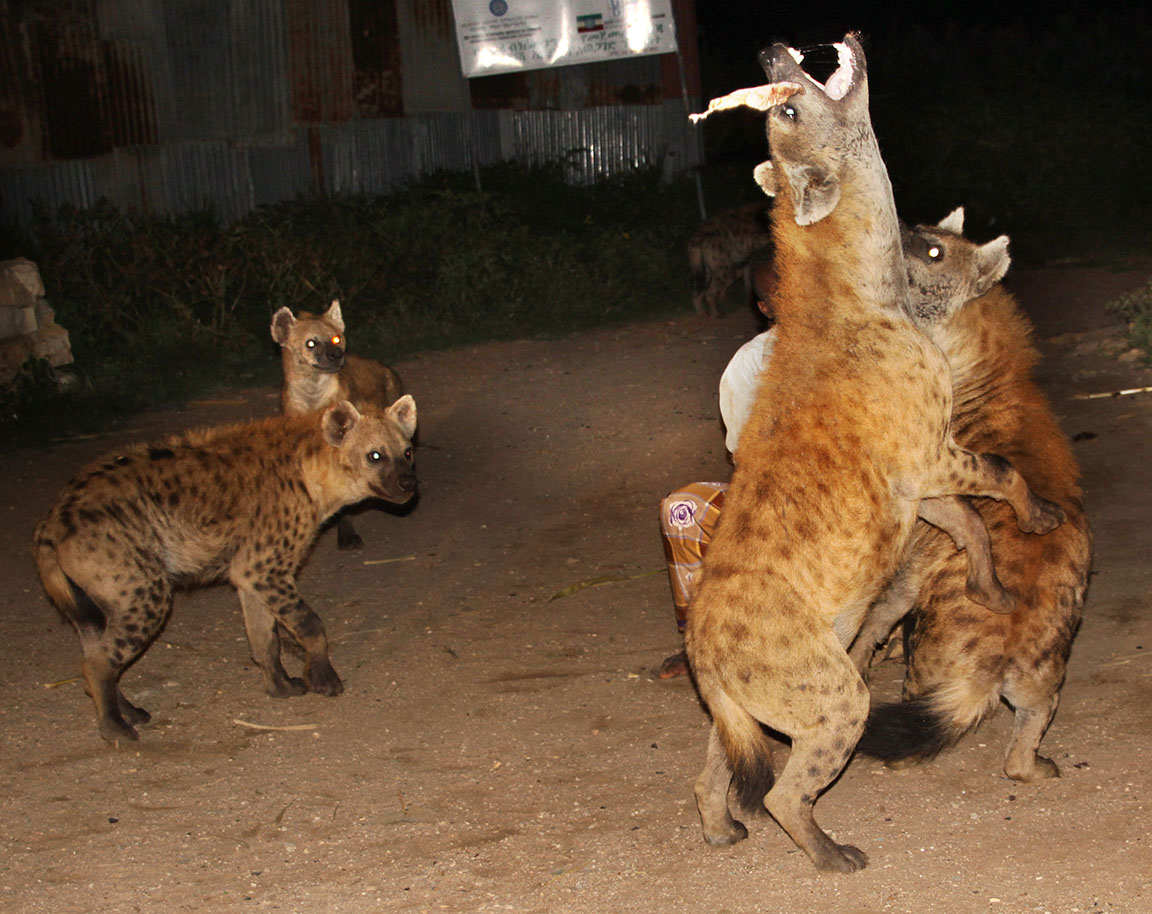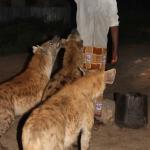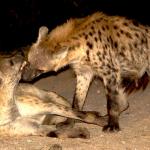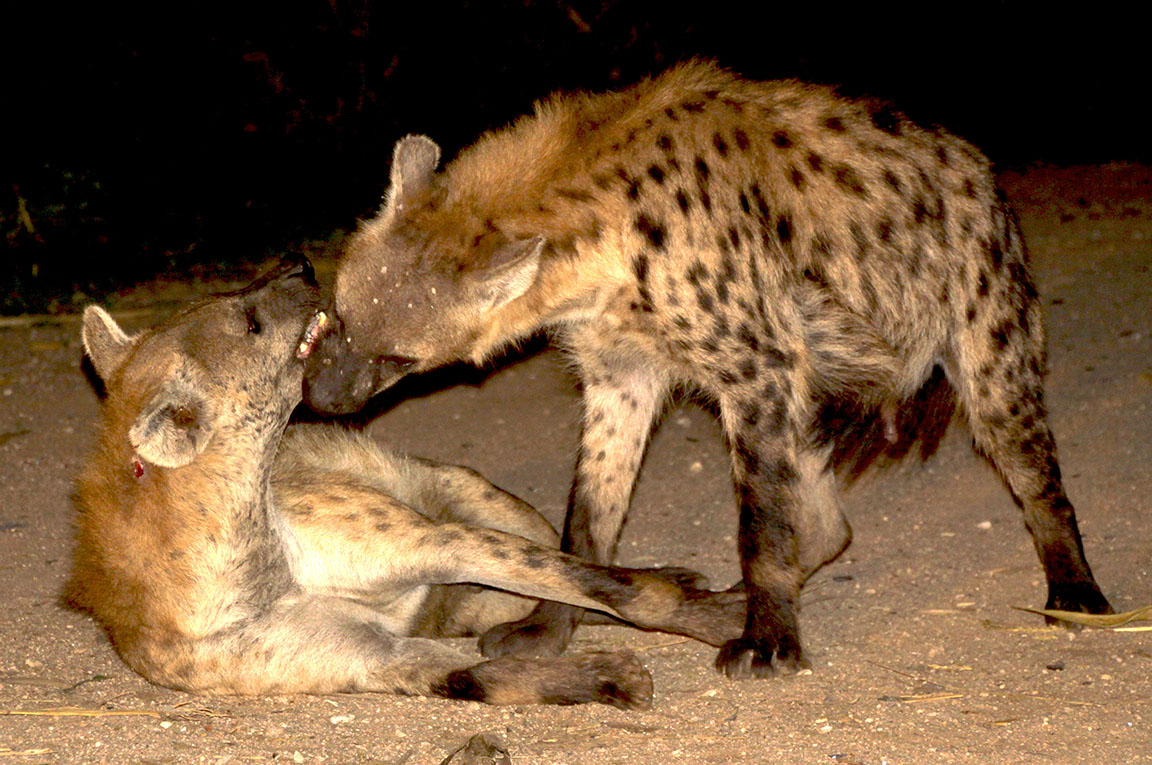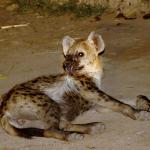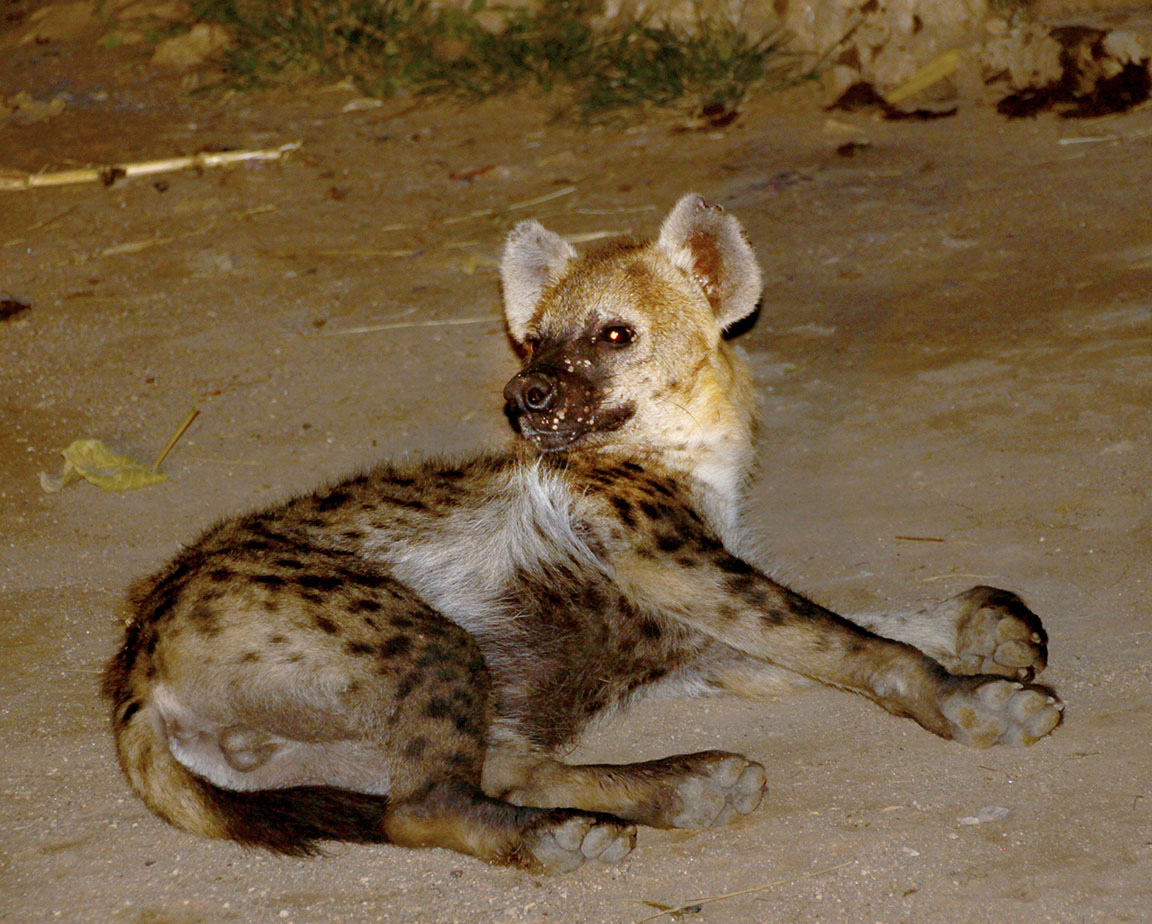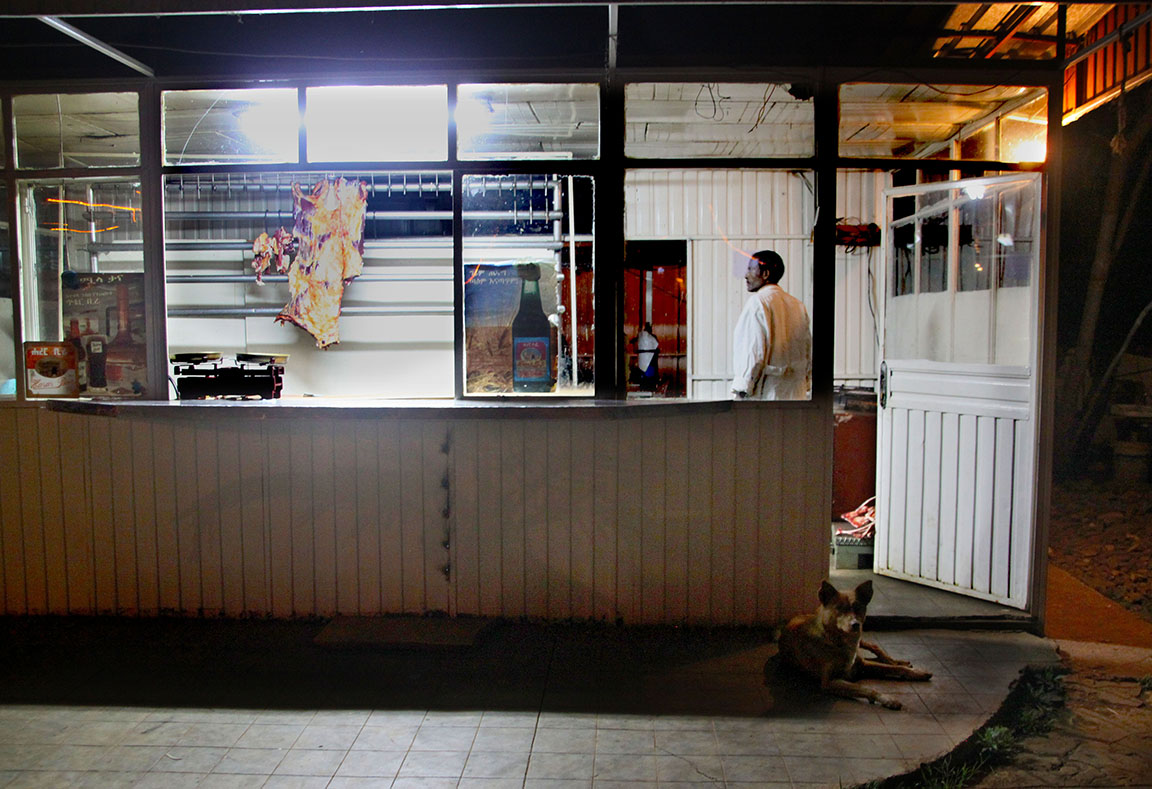Hyenas of Harar Ethiopia
Harar, Ethiopia, has always been a caravan city, both holy and pragmatic, culturally rich and economically fragile. It’s Old Town, or Jugol, dates from the 16th Century. With over eighty mosques and shrines, it links Christian Ethiopia with the Muslim and Arab world. Five entry gates anchor its curving fortress-like walls. Markets fill its maze of passageways with produce and provisions; mattresses, plasticwear, breads, smuggled cellphones. At the butchery, black kites swoop down to snatch discarded shreds of camel meat.
There’s a robust commerce in qat, the obsessively chewed, leafy narcotic herb. Its sheathed green bundles, transported by truck and pack animals, are traded with animated fervor.
At night, just outside city walls, Abbas Mumey’s tall frame is illuminated by car headlights. Facing the surrounding rocky terrain, he beckons softly, “… Koti, Jalla, Botay..” After some minutes, pairs of green orbs catch the headlights’ glow; wild hyenas descend from the hinterland.
Abbas stabs into a black metal pot for scraps of meat, and holds them aloft. The first hyena approaches, circles, then lunges and snaps.
More hyenas appear – maybe there’s twelve. Abbas, like his father Yusef, knows them all, and shoves the greedier ones to give the shyer ones a chance. As they yip, snap, chatter and snarl, I recognize this sound from under our hotel window.
Though in decline and demonized throughout much of Africa, wild hyenas loom large in Harari folklore; as a bridge to, and protection from, the unseen spirit world. Emerging from dens in the bush, they travel in packs to forage at the local dump, or slip through dedicated openings in the fortress wall, to compete with dogs for street spoils.
Before this visit ends, I join Abbas in his efforts. As they lunge and grab at the dangling shreds of flesh, I feel the pull and snap of their jaws, smell their breath, note their wounds, count their spots. They seem both dogish and catish, their coats more bristly than soft.
I can only hope these, and the rest of their species, thrive.

